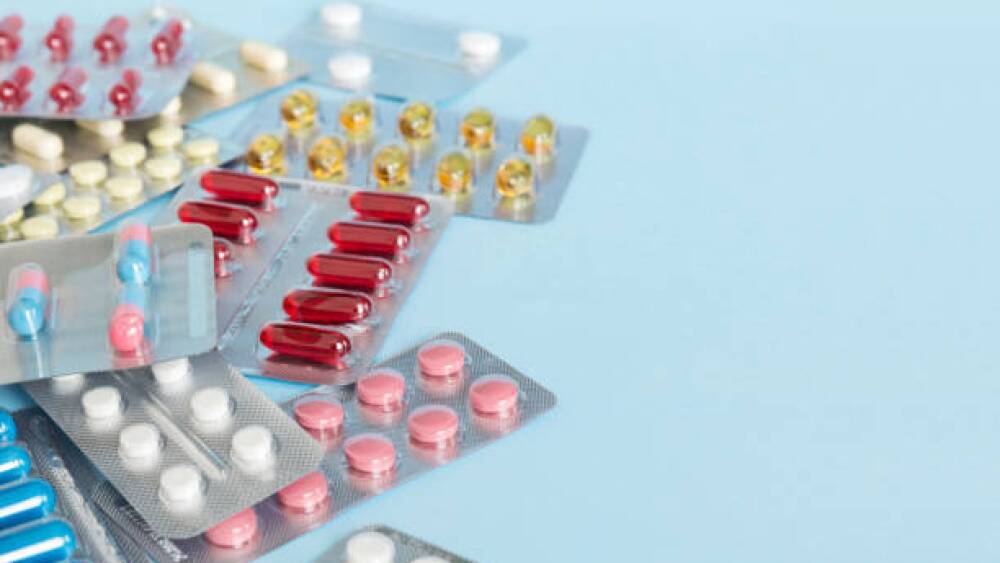MEXICO CITY, Aug. 7 /PRNewswire-FirstCall/ -- GlaxoSmithKline announced that a retrospective analysis of six clinical trials found that anti-HIV regimens containing EPZICOM (abacavir + lamivudine) were effective in treatment-naive patients regardless of baseline viral loads. One of the trials analyzed was a large study comparing treatment with regimens containing EPZICOM versus regimens containing Truvada(R) (tenofovir DF + emtricitabine) in treatment-naive patients with both high and low baseline viral loads. The analysis was presented today at the 17th International AIDS Conference in Mexico City, Mexico.
GSK examined six clinical trials with 2,940 treatment-naive patients on regimens containing either EPZICOM or its individual components over 48 weeks of treatment, including the HEAT study, a head-to-head clinical trial comparing EPZICOM to Truvada. Patients were analyzed according to baseline viral load (<100,000c/mL being low and greater than or equal to 100,000c/mL being high) and efficacy was determined by time to virologic failure. The definition of virologic failure was similar to that utilized in the ACTG 5202 study. At 48 weeks, 87-95% of all patients in the analysis did not meet the definition for virologic failure. An additional retrospective analysis of the HEAT study found similar results in both EPZICOM- and Truvada-containing regimens regardless of baseline viral load.
The analysis was conducted after interim data from a single, ongoing study by the AIDS Clinical Trials Group (ACTG 5202) found results inconsistent with previous experience with EPZICOM. A routine review of ACTG 5202 by the data safety monitoring board (DSMB) found that although both the EPZICOM and Truvada treatment arms were effective in reducing HIV viral load, a statistically higher rate of protocol-defined virologic failure and protocol-defined safety endpoints were seen in patients with high screening viral loads in the EPZICOM-treatment arm. The rates of HIV viral load reduction with EPZICOM in the high viral load arm were lower than what has been reported in existing clinical data.
Following these findings, the DSMB recommended unblinding patients receiving EPZICOM in the high viral load arm. Affected patients were notified of the results by the physicians and provided the option to stay on EPZICOM if the patient was having success with the regimen. The DSMB recommended that study participants with lower screening viral loads continue on their assigned blinded regimen and be followed in the study without change. The ACTG 5202 trial is ongoing and patients in the high viral load arm have the option to continue in the study, whereas those in the lower viral load group continue in the trial and remain blinded to their regimens.
"GlaxoSmithKline carefully considers any new information on our medicines and we are working closely with ACTG to understand why our analyses found conflicting results," said John Pottage, M.D., Vice President Global Clinical Development at GlaxoSmithKline. "This analysis, based on similar criteria to that utilized in ACTG 5202, demonstrates that EPZICOM continues to be an effective treatment option for treatment-naive patients. As always, physicians must consider each patient's individual health and treatment history when making treatment decisions."
Study Analysis Explained
GSK's retrospective analysis included 48-week data from six clinical trials in 2,940 treatment-naive HIV patients. Patients were analyzed based on baseline HIV viral load (<100,000c/mL and greater than or equal to 100,000c/mL) with a primary efficacy endpoint of time to virologic failure measured using Kaplan-Meier analysis. Virologic failure was defined as confirmed viral load greater than or equal to 1,000c/mL at or after 16 weeks and before 24 weeks, or viral load greater than or equal to 200c/mL at or after 24 weeks. These are similar to the virologic failure criteria used in ACTG 5202 to assess the impact of screening viral load on virologic response.
The six clinical trials included in the analysis were CNA30024, CNA30021, ESS30009, SHARE, KLEAN and HEAT. The analysis examined EPZICOM-containing regimens in each study and the Truvada-containing regimens in HEAT. Among all patients receiving EPZICOM in the six clinical trial analysis, 87-95% did not experience virologic failure by 48 weeks of treatment. In the HEAT study 87-90% of patients in both the EPZICOM and Truvada arms did not experience virologic failure by 48 weeks, regardless of baseline viral load (<100,000 and greater than or equal to 100,000c/mL).
A safety analysis was also conducted in the HEAT study using the ACTG 5202 safety endpoint criteria. The safety endpoint was defined as time to onset of first grade 3 or 4 sign, symptom, or lab toxicity at least 1 grade higher than baseline, as used in ACTG 5202. In both treatment arms of the HEAT trial, 15% of patients had drug-related Grade 3-4 adverse events. Safety data from the HEAT analysis also found that both EPZICOM- and Truvada-containing regimens were generally well-tolerated with few treatment discontinuations due to adverse events, (19% with Epzicom and 24% with Truvada).
Important Information about EPZICOM
EPZICOM, in combination with other antiretroviral agents, is indicated for the treatment of HIV-1 infection in adults.
EPZICOM is one of 3 medicines containing abacavir. Before starting EPZICOM, your healthcare professional will review your medical history in order to avoid the use of abacavir if you have experienced an allergic reaction to abacavir in the past.
In one study, more patients had a severe hypersensitivity reaction in the abacavir once-daily group than in the abacavir twice-daily group.
Important Safety Information
EPZICOM contains abacavir, which is also contained in ZIAGEN(R) (abacavir sulfate) and TRIZIVIR(R) (abacavir sulfate, lamivudine, and zidovudine). Patients taking EPZICOM may have a serious allergic reaction (hypersensitivity reaction) that can cause death.
If you get a symptom from 2 or more of the following groups while taking EPZICOM, stop taking EPZICOM and call your doctor right away:
Carefully read the Warning Card that your pharmacist gives you and carry it with you at all times.
If you stop EPZICOM because of an allergic reaction, NEVER take EPZICOM or any other abacavir-containing medicine (ZIAGEN, TRIZIVIR) again. If you take EPZICOM or any other abacavir-containing medicine again after you have had an allergic reaction, WITHIN HOURS you may get life-threatening symptoms that may include very low blood pressure or death.
If you stop EPZICOM for any other reason, even for a few days, and you are not allergic to EPZICOM, talk with your healthcare professional before taking it again. Taking EPZICOM again can cause a serious or life-threatening reaction, even if you never had an allergic reaction before. If your healthcare professional tells you that you can take EPZICOM again, start taking it when you are around medical help or people who can call a doctor if you need one.
A build up of lactic acid in the blood and an enlarged liver, including fatal cases, have been reported.
Do not take EPZICOM if your liver does not function normally.
Some patients infected with both hepatitis B virus (HBV) and HIV have worsening of hepatitis after stopping lamivudine (a component of EPZICOM). Discuss any change in treatment with your doctor. If you have both HBV and HIV and stop treatment with EPZICOM, you should be closely monitored by your doctor for at least several months.
Worsening of liver disease (sometimes resulting in death) has occurred in patients infected with both HIV and hepatitis C virus who are taking anti-HIV medicines and are also being treated for hepatitis C with interferon with or without ribavirin. If you are taking EPZICOM as well as interferon with or without ribavirin and you experience side effects, be sure to tell your doctor.
When you start taking HIV medicines, your immune system may get stronger and could begin to fight infections that have been hidden in your body, such as pneumonia, herpes virus, or tuberculosis. If you have new symptoms after starting your HIV medicines, be sure to tell your doctor.
Changes in body fat may occur in some patients taking antiretroviral therapy. These changes may include an increased amount of fat in the upper back and neck ("buffalo hump"), breast, and around the trunk. Loss of fat from the legs, arms, and face may also occur. The cause and long-term health effects of these conditions are not known at this time.
The most common side effects seen with the drugs in EPZICOM dosed once-daily were allergic reaction, trouble sleeping, depression, headache, tiredness, dizziness, nausea, diarrhea, rash, fever, stomach pain, abnormal dreams, and anxiety. Most of the side effects do not cause people to stop taking EPZICOM.
For additional important information about EPZICOM please visit www.epzicom.com
About GlaxoSmithKline
GlaxoSmithKline is one of the world's leading research-based pharmaceutical and healthcare companies and an industry leader in HIV research and therapies. The company is engaged in basic research programs designed to investigate new targets to treat HIV. For full information on GSK's HIV medications, please visit www.treatHIV.com.
Cautionary statement regarding forward-looking statements
Under the safe harbor provisions of the U.S. Private Securities Litigation Reform Act of 1995, GSK cautions investors that any forward-looking statements or projections made by GSK, including those made in this announcement, are subject to risks and uncertainties that may cause actual results to differ materially from those projected. Factors that may affect GSK' s operations are described under 'Risk Factors' in the 'Business Review' in the company' s Annual Report on Form 20-F for 2007.
CONTACT: US Media, Marc Meachem, +1-919-483-2839, or Mary Anne Rhyne,
+1-919-483-2839, or US Analyst or Investors, Frank Murdolo,
+1-215-751-7002, or Tom Curry +1-215-751-5419, all for GlaxoSmithKline
Web site: http://www.treatHIV.com/
http://www.epzicom.com/




